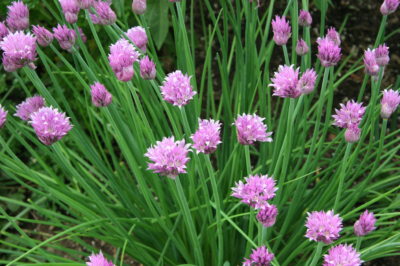Especially in purchased chive pots after a short time many small, black flies cavort. In most cases, these are so-called fungus gnats, which spread very quickly. Fortunately, they are also quite easy to fight.

What are fungus gnats?
Fungus gnats are black, very small flies. The insects lay their eggs in the substrate of potted plants, where the larvae eventually feed mainly on the roots. Without countermeasures, the animals multiply very quickly, and they also endanger the health of your plants – not to mention the fact that they are quite annoying. After all, who likes to have dozens or even hundreds of mosquitoes flying around in their kitchen? Therefore, you should act as soon as possible after you notice the infestation.
Fighting fungus gnats
In most cases, these little beasts can be controlled quite well with biological home remedies – fortunately, because chemicals are rather inappropriate on kitchen herbs such as chives, which are intended for consumption. And this is how you get rid of the flies on chives:
- Remove the infested plant from the pot.
- Shake off the soil thoroughly, if necessary rinse it under the shower or immerse the rootstock in a bucket of water.
- Take a new plant pot and fresh substrate.
- Repot the plant.
- Layer a good inch of coarse sand over the actual substrate.
- The sand will keep the flies from laying their eggs in the soil.
- If the infestation is severe, you can also cover the pot, for example with a transparent film.
- If possible, treat all neighboring plants in the manner described.
By the way, an infestation of fungus gnats is always an indication that the plant is kept too moist – the animals feel particularly comfortable in a warm and moist environment.
Tips & tricks
Chives – especially the seedlings – are often infested by onion fungus gnats. In this case, it is necessary to act quickly, because especially the maggots become dangerous to the plant. Take the same countermeasures as described and hope that it is not too late. In many cases, infested plants can not be saved.

